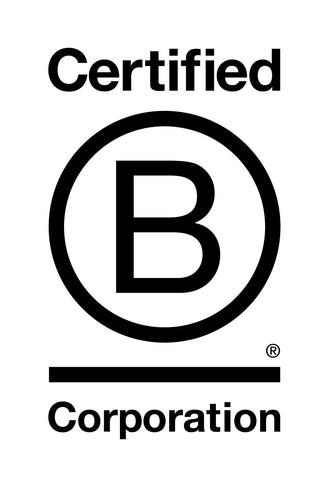6 Tips For Buying An Ethical Engagement Ring
With so many people in the jewelry industry making ethical and eco-friendly claims about their products, how do you wade through all the options to find an ethical engagement ring? Here are a few tips to making sure your ring meets all the criteria for being ethically produced with sustainably sourced materials.
Shop a Certified B Corp
Only a handful of fine jewelry companies that sell conflict-free engagement rings are B Corp certified. Why is this important? Certified B Corporations are businesses that meet the highest standards of verified social and environmental performance, public transparency, and legal accountability to balance profit and purpose. B Corps are accelerating a global culture shift to redefine success in business and build a more inclusive and sustainable economy. The certification is a rigorous process where the company’s practices, vendors and corporate beliefs are thoroughly evaluated.

Use Lab Grown Diamonds and Gemstones as well as Recycled
Despite claims to the contrary, there is no way to purchase a conflict free newly mined diamond. There is always destruction involved, either to the earth or humanity. Make sure you purchase only from companies that sell exclusively Lab Grown Diamonds, which are real 100% crystallized carbon diamonds produced in a lab, or Recycled Diamonds, which are previously worn earth-mined diamonds that have been put back into circulation in the diamond market.

Look For Recycled Metals
Only purchase from companies that use 100% recycled metals. Recycled precious metals are of the same high quality as newly mined metals, without the level of degradation to our natural resources caused by new mining. Metal mining (gold mining in particular) is one of the most environmentally destructive types of mining with 20 tons of ore required to produce enough gold for a single ring. In addition, it’s known for being one of the most corrupt industries. In fact, last fall, the U.S. banned gold from the Democratic Republic of the Congo because it is believed to be produced using forced labor. Out of 1,500 gold mines in the DRC, only 106 of them have been certified to not be using forced labor.
Check the Company’s Mission
Does the company you are purchasing from take any steps to go above and beyond just carrying recycled metals and diamonds? See if there is a component of giving back to the earth or humanity - whether through charity, volunteer hours, or donations to different causes. Companies that go beyond the bare minimum are typically the ones inspiring true change in the industry.
Make Sure Your Diamond Has a Valid Grading Certificate
Check that your lab grown diamond is certified by a reputable company, such as the IGI, GIA, or GCAL. These certifications are done independently and provide the information on who grew the diamond and where it was grown right on the certificate. Some companies that are selling lab grown diamonds are doing so uncertified in order to cut costs to themselves and the consumer, but in doing so they can also cut quality, so it is important to purchase only from companies that sell certified lab grown diamonds.

Don’t Rely on the Kimberely Process
If you go to any jewelry store selling earth-mined diamonds and ask for a conflict-free diamond, they will tell their diamonds are certified through the Kimberely Process. But that is not enough. The main problem is that the definition of a conflict-diamond is too narrow. The KPCS definition of a conflict diamond is a: "rough diamond mined in an area controlled by insurgent forces and used to fund war." This means someone could have been enslaved, tortured, raped, beaten, or killed to mine that diamond and it is marketed to you as a conflict-FREE diamond because it didn’t directly fund a war. For example, the diamonds currently coming out of Zimbabwe, Angola, and Congo, which are notorious for killing, raping and maiming hundreds of artisanal miners, are considered “conflict-free” under the KPCS. It has now been proven that the Kimberley Process has failed diamond consumers.
These are just a few tips to get you started on your search for a conflict-free engagement ring, but we are happy to answer any questions you may have along the way. We encourage everyone to be a conscious consumer and take a few extra steps to ensure they are purchasing a product they can believe in and love for a lifetime.


